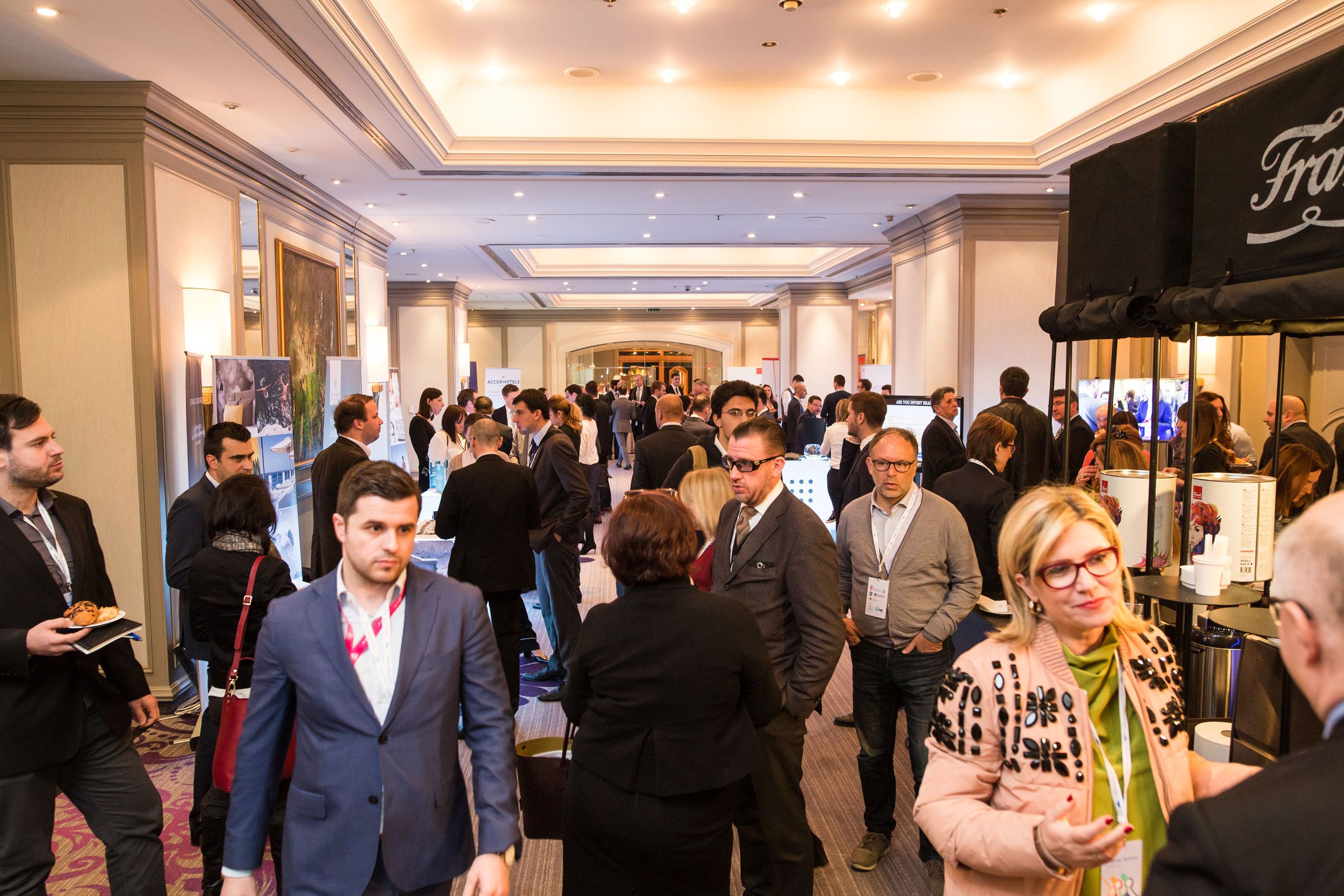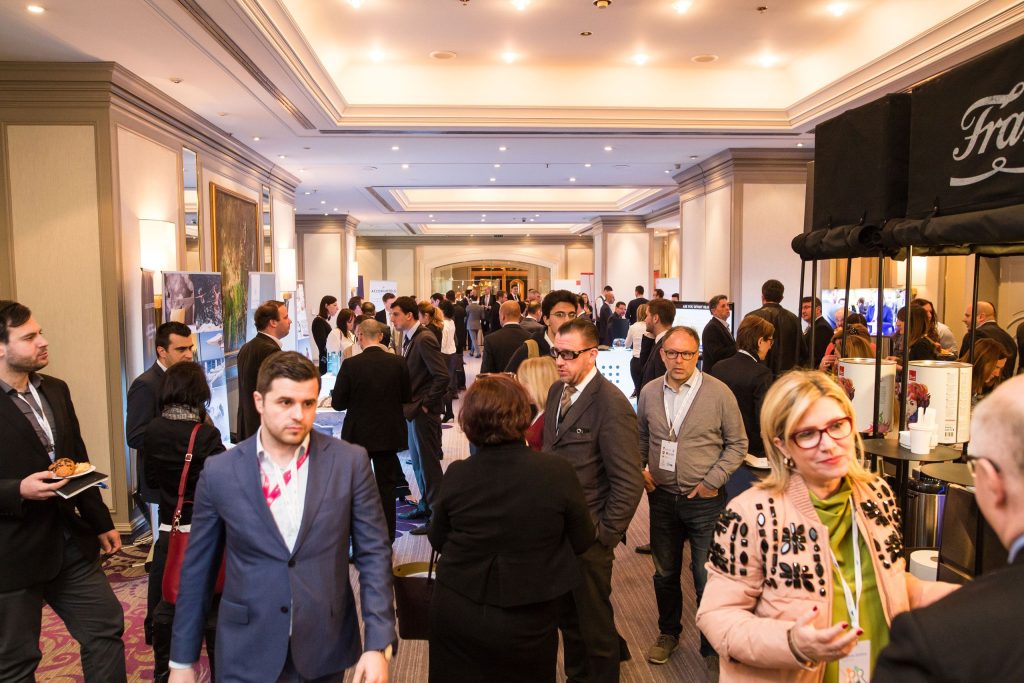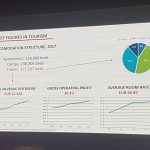The second day of the 6th Adria Hotel forum, the largest investment conference in Southeastern Europe (SEE) with 350 participants from 15 countries, brought more topics crucial for the regional tourism industry
Opening the conference was a lecture titled “Are you ready for the GDPR,” covering the protection of personal data in the tourism sector. Marija Zrno of the Bardek, Lisac, Mušec, Skoko Attorney Office and Gregor Famira of CMS Croatia warned participants that May 25 is the deadline for the enactment of the Personal Data Protection Act at the EU level. The hotel industry, which often uses the data about its guests, will have to prepare well and make sure their employees respect the GDPR regulations. “The problem is not in collecting the data but the way of doing so and any exchange of such data. Do not simply copy privacy rules from your colleagues as every agreement is specific. Fines for the violation of this Act are significant, up to five percent of your annual income,” Zrno warned.
Following was a panel about the most current global topic of the industry – lack of qualified labor force, led by TV host Mislav Togonal. Participating in the discussion were Haris Neofytidis (Metropol Palace), Lachezar Nikolaev Todorov (Terra Tour Service), Michael Heyward (Glion Institute of Higher Education), Peter Ryrvik (Talent solutions AB) and Gordana Kolenko (BHV consulting), who presented a benchmark study by Valamar Riviera, which uses sophisticated technology to define the success formula for its employees.
Neofytidis, whose company does business in several countries of SEE, compared income of waiters in 5-star hotels. In Greece older and experienced waiters receive 700 to 800 euro, in Bulgaria 400 euro and in Serbia 250 euro. “Greece is a very developed tourism nation, a million people in the sector, however even there it is hard to find workers for resorts as many people have their own private tourism business. Serbia is just starting to get seriously into tourism, with just 75 thousand employed in the sector, while Bulgaria is somewhere in the middle,” said Neofytidis.
Kolenko feels an exodus can only be countered with a healthy economy. “In all discussions of investments, the center point are new keys and real estate, never investments in people and their development,” said Kolenko.
Lachezar Nikolaev Todorov disclosed that the Bulgarian labor force problem began with EU ascension, as is the case with Croatia today. Experts lobbied for practical education to be part of high school and college educational programs and they are very popular today. “Bulgaria turned from higher education to a trade system of tourism education. We don’t need that many managers but people with high school degrees who will serve guests their breakfast,” explained Todorov, adding Bulgaria also turned to importing labor. His company hired last year 150 people from Ukraine and Moldova, a season saver.
Michael Heyward from the Glion Institute focusing on leaders in business, insists on practical experience of students who have to climb all the steps (bed making, kitchen duties etc.). “Practical experience always gives the best results and it is crucial for the development of a professional career. When colleagues complain of a lack of qualified workers, I ask them what and how much they invested in them. They tell me investments are not worth it as in a few months they will seek other jobs. I answer then it must be best to invest nothing in their worker and retain an unqualified worker forever. If half the people you invest in return the next season, you’ve done a great job as the new season begins from a much better position,” explained Heyward.
Peter Ryrvik comes from Sweden, speaking from a slightly different position as many SEE workers arrive to his country seeking work. His company uses sophisticated technology to introduce benchmark studies and formulas to hotel companies. He commented on the issue of a lack of middle management, feeling employers don’t aid potential managers enough to be self-aware. If they don’t understand themselves, they won’t understand others.

The second panel named “Hotel companies on the capital market” was led by Andrej Erjavec (InterCapital Securities), with participants Frank Reul (Accor hotels/Orbis), Krešimir Huljev (Sunce koncern), Milena Perković (Arena Hospitality Group) and Marko Čižmek (Valamar Riviera). The introductory presentation of the topic saw Erjavec stating the fact that no country in the world has so many tourism companies on the capital market as Croatia does. There are a total of 23 on the Zagreb Stock Exchange (ZSE) and they make up 10 percent of the total stock exchange capital. Sunce Koncern company joined last year and the Arena Hospitality Group released an IPO.
Frank Reul feels that such a number of tourism companies on the stock exchange means the sector is transparent and that it is good for many smaller investors to participate in the capital market as that reduces risk and danger of a large company crashing, affecting economy and employment.
Krešimir Huljev explained that Sunce Koncern gained better access to capital and debt refinancing after joining the stock exchange, increasing competitiveness and its own value in the long term.
Milena Perković explained her company decided to join Arenaturist after recognizing a good opportunity among several SEE project and that all stock holders, including Park Plaza, jointly decided for the company to remain on the ZSE. “We are currently looking at 10 potential projects in SEE, but at this moment patience is key. Our stock holders know they cannot expect high dividends in a short term, but expect a long term increase of investment value,” Perković pointed out.
Marko Čižmek explained general causes of increased value of hotel company stocks in the past several years. “The entire industry went through a rapid rise of investments in hotel and private accommodation, tourism has a huge significance in the GDP, we finally have solvency on the market, and the perception of investors about Croatia has changed in the past five years. Today all funds know of investment opportunities in Croatia,” noted Čižmek.
Whether hotel companies need to fight the onslaught of private accommodation or ‘flirt’ with it, was the topic of the third panel, moderated by Branko Bogunović of Hotel & Destination Consulting.
The panel was composed of Bernardo Retana (Otium Residences), Pawel Rek (Amadeus), Ivan Milotić (Mystria.com), Jeroen A. Oskam (Hotelschool the Hague), Takuya Aoyama (Hyatt International).
Oskam’s company did business research into Airbnb, which showed the number of tourist overnights via the platform rose more than 100 percent in some markets, but added last year the growth slowed. Airbnb recorded 258 thousand overnights in Zagreb last year, a 73 percent increase compared to 2016. Airbnb had a 13 million euro turnover in Zagreb, which is not a lot, and Oskam feels a large share of that market ended up in the grey zone.
Bernardo Retana stated his company in Spain closely cooperates with private accommodation owners. They offer them capacity, marketing and operations management. “We perform a very similar function to hotel management, only in smaller volume. The private accommodation business must be legally regulated, but also professional. Airbnb is only one of 60 similar sales channels and if people are smart they will work with them,” concluded Retana.
Pawel Rek said Airbnb’s business is increasingly becoming similar to typical online travel agencies and the platform is expanding its services. He announced that next week will see the release of the latest Airbnb platform version, considered to be the largest change for the company in the past 10 years.
Ivan Milotić, co-owner of a portal renting only villas to guests, invited hotel owners to cooperate with the quality villas cluster, in the manner of offering villas hotel services.
Takuma Aoyama does not consider platforms or private accommodation a realistic threat as in his opinion, they have no property of their own, unlike the hotels. But they do compete in marketing which sells experience and the hotel loyalty programs. In Florida, he said, Hyatt works with owners of luxury private accommodation.
The last panel titled “New products and their successful expansion” brought together very interesting examples of new product concepts, moderated by Tarik Bilalbegović.
Evgenia Jenkins from the Netizen company presented a concept from Russia, the so-called hoshtel, a hybrid of hotel and hostel, where buildings have the basic hotel infrastructure (reception, bar, lobby), but rooms are adapted to all types of passengers. Along with two hotels in Russia, they will soon open a 250-room facility in Budapest.
Wolfgang Gold of easyHotel explained the concept if his super-budget brand offering guests very small rooms, just a bed and bathroom, with all other services paid extra. Proving this concept works are plans to expand into the Far East, Africa, Iran and Nepal.
Jason Wischhoff (Dream Hotel Group) said “Unlike Traditional operators, we love to challenge dead spaces throughout PA’s that can be re-invented and generate an income stream.Central Hall ounce a Methodist church then closed as dilapidated and obtained a night club license. Now, to be our 1st Unscripted Hotel in the U.K., Birmingham.”
Closing the Adria Hotel Forum was a presentation of the best tourism industry management schools in Switzerland.









